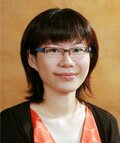Winners
-
Xiao-Mi Tan
First Prize

Xiao-Mi Tan’s article, published in the South China Morning Post, exposes the Chinese hospitals profiting from induced abortions. Tan reveals that many Chinese hospitals are cashing in on the desperation of terminally ill patients, offering unproven and fraudulent treatments based on stem cells and tissues harvested from aborted foetuses.
The exposé has generated intense discussion in China’s blogosphere and has prompted the Hong Kong authorities to begin work on regulating stem cell treatments. With the public increasingly sceptical towards such treatments in the wake of this piece, China is now being forced to consider both the implications of its often lax regulatory system and its approach to human rights in general.
 China
China
Title of the article
Medicine’s Wild EastName of media
South China Morning PostTan’s article was characterised by the Grand Jury as ‘a very brave piece and a very strong story’, with Tan praised for ‘opening so many doors on the subject’.
Read article
View the interview
-
Neha Dixit
Second Prize

In this exposé, featured in Tehelka, Neha Dixit uncovers the plight of exploited children from poverty-stricken parts of northern India. Lured by the promise of education and a better life, parents send their children to Islamic seminaries, only for them to be subsequently used as cheap labour and otherwise abused. In the aftermath of the story, 500 children were rescued.
 India
India
Title of the article
Lost Children of the ProphetName of media
TehelkaThe Grand Jury noted the ‘powerful’ nature of the story, as well as the piece’s ‘very impressive side effect’.
Read article
View the interview
-
Muneeza Naqvi
Third Prize

Muneeza Naqvi’s article for the Associated Press highlights the plight of untold numbers of unwanted girls in India, neglected and abandoned by a society which prizes sons above all. Naqvi contributes to overturning entrenched, traditional attitudes in India and emphasises the importance of a balanced, inclusive and representative society.
 India
India
Title of the article
No Country for Little GirlsName of media
Associated PressThe Grand Jury remarked that there is a ‘dark side’ to India - behind the façade of famous women leaders in politics and business ‘girls are dying just because they’re girls’.
Read article
View the interview
